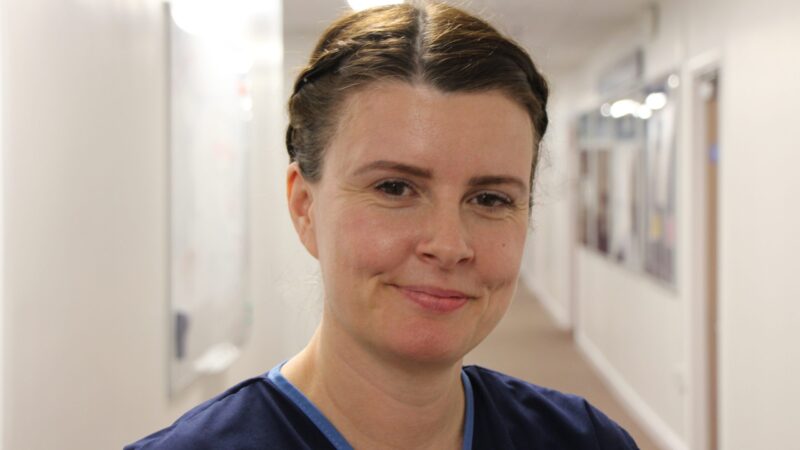
North Tees and Hartlepool NHS Foundation Trust is hosting a week of campaigning to support pregnant women quit smoking.
The Trust’s first smoking in pregnancy awareness week takes place from Monday 6 to Sunday 12 March, with the week of activity incorporating national No Smoking Day (Wednesday 8 March).
Danielle Stephens, quality, safety and innovation lead, said: “Protecting the unborn baby from tobacco smoke is one of the best things any woman who smokes can do to give their child a healthy start in life. It can be difficult to stop smoking, but it’s never too late to quit.
“Every cigarette contains more than 4,000 chemicals, many of which can harm your unborn baby. Cigarettes can restrict the essential oxygen supply to the baby so their heart has to beat harder every time you smoke.”
We’ll be around the Trust all week offering support to any woman who wants to quit for the sake of her baby. We’re here to help.
Danielle Stephens, quality, safety and innovation lead
Tobacco dependency service
Danielle is keen to stress that the Trust tobacco dependency service and community midwifery assistants are available to help.
“We are here to support any woman who wants to quit for the good of her baby”, Danielle commented.
“Midwifery assistants are pivotal in providing smoking in pregnancy support and will contact women within 24-hours to offer a tailored 12-week quit plan with motivational support and use of specialist products.
“The Trust’s tobacco dependency service complements the maternity care team with additional support to remain smoke free throughout their maternity journey.”
Opportunity

Francesca Rovardi is a Trust midwife sonographer. She said: “Part of my role is to scan pregnant women who are smoking in pregnancy and I get a good opportunity to talk to women about the negative impacts of smoking. I can show them the baby on the screen and we can look at the placenta and talk about how smoking affects oxygen distribution to the baby. We’re here to help.”
The team will be carrying out a host of activities during smoking in pregnancy awareness week, including:
- An incentive scheme for the staff member who refers the most women smokers to the tobacco dependency service
- Smoke free champions will hit the wards, offering advice on guidance on the smoke free policy, referral process and nicotine replacement therapies
- Encouraging staff to take part in a brief online training session on how to offer advice and support to pregnant smokers
- Encourage take up of the North East and North Cumbria Integrated Care System’s Smoke Free Incentive Scheme which rewards smokers who are quitting with prizes such as shopping vouchers when they kit key milestones.
Ask for support
If you would like help quitting smoking to protect your baby, please get in touch with us.
Key facts about smoking in pregnancy
- Smoking while pregnant increases the chances of miscarriage, preterm birth (born before 37 weeks), small for gestational age baby (a baby that appears not to have reached the expected weight/growth for the number of weeks of the pregnancy), placental abruption (a serious condition in which the placenta starts to come away from the inside of the womb/uterine wall) and pre-eclampsia (a condition that affects some pregnant women, usually during the second half of pregnancy (from 20 weeks) or soon after their baby is delivered)
- Increased risk of sudden infant death syndrome
- Smoking is known to increase the risk of stillbirth. The recent figures for North Tees and Hartlepool NHS Foundation Trust show that 50% of stillbirth cases were smokers
- About 8 out of 100 babies will be born prematurely. There is a higher risk of prematurity if you smoke
- Babies of smokers, on average, weigh less than other babies, which can cause problems during and after labour – for example, they are more likely to have problems keeping warm and are more likely to get infections
- Children whose parents smoke are more likely to suffer from asthma and other serious illnesses that may need hospital treatment
For more information about smoking in pregnancy, please visit the NHS website.